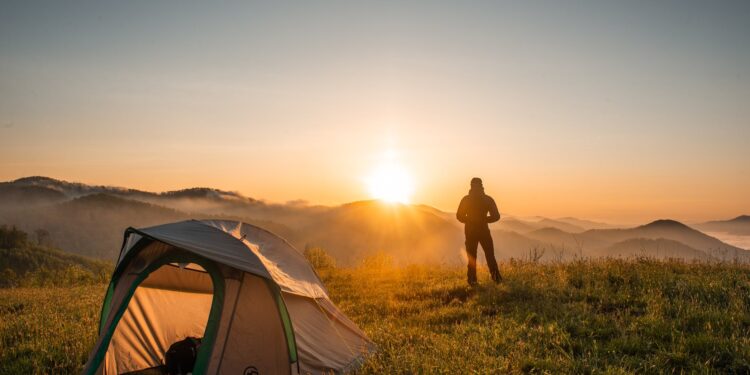
Ah, the great outdoors. There’s nothing like setting up camp and enjoying the fresh air all around you. And if you’re going on a camping trip with friends, it’s even more fun because you can share stories around the fire pit and enjoy each other’s company. But before heading out into nature, it’s important to make sure that your group is prepared for what lies ahead look at online camping gear in Australia. Here are some tips from experienced campers to help ensure your next trip goes smoothly.
If you’re looking to make your camping trip easier, check out our guides to camping beds, camping kettles, camping stoves and camping essentials.
Nail down when and where you’re going.
- Nail down when and where you’re going.
The first step to planning a trip with your friends is deciding where and when you want to go. This can be as simple as picking a state or region, but it’s helpful to have a more specific idea of what kind of place might work for everyone in the group (e.g., beaches vs mountains). The more options you have, the better—this way, everyone has something they can agree on! Make sure that everyone involved has final approval on all details before moving forward with final plans.*
Choose the activities you’ll do.
- Select activities everyone will enjoy. If you can’t think of something that everyone is interested in doing, don’t force it! Instead, choose one or two activities that most people are willing to try out and leave other options open for the next time you go camping together.
- Make sure your activities are easy to set up and clean up. While it’s fun to build elaborate structures with sticks and twine if your friend has never done this before or if setting up camp is frustrating for her, she won’t want to do it again—and neither will anyone else!
Consider renting a place.
If you want to go camping but don’t want to camp in the wild, consider renting a place. Renting a place can be cheaper than buying all the equipment and supplies. You’ll also get more comfortable accommodations than if you were staying at a campsite in the middle of nowhere. Plus, it’s safer too!
If your friends are into it and willing to book some time at an Airbnb or hotel that has cheap rates during off-season months (like September), this is an option worth considering.
Set a budget for what everyone’s responsible for.
Now that you’ve decided what type of camping trip you want to have and who’s going along with you, it’s time to figure out how much you need to save. Whether or not someone else will be paying for the trip depends on your relationship with them and whether or not they asked first.
If it’s a friend-of-a-friend or someone who isn’t someone close enough to ask directly (or if they ask), don’t feel pressured into footing the bill yourself! Offer alternatives like taking turns buying gas or food along the way, splitting up costs evenly after each leg of travel, etc. It’s also good practice to set some boundaries: if one person offers help with dinner but then shows up at their house every evening without fail for three weeks straight without contributing anything else (like a shared tent), it might be best just not invite this person again next time around!
Plan for food, but don’t be afraid to improvise.
Remember, it’s a camping trip. If you want to make a big fancy meal, that’s great! But don’t feel like you have to go all out. And if hosting a fancy buffet is not your thing—or maybe there are allergies or other issues that make it more complicated—then just plan for simple meals and snacks instead.
Planning for leftovers can help save some time and money when preparing for campers’ meals. You may also find yourself with extra ingredients at the end of the trip; if so, consider packing up some food in Tupperware containers so that you can share them with friends and family back home as well!
Know your limits so you can keep everyone safe.
This is about knowing your limits and being prepared to deal with emergencies. If someone has a medical issue, don’t hesitate to ask for help. If you’re the one that needs help, be prepared to accept it when offered. Make sure everyone has a first aid kit and knows how to use it before heading out on your trip.
There’s nothing wrong with asking another camper if they saw which way the trail went off in case you get lost—you’ll all have more fun if no one gets hurt!
Make sure to plan things out carefully.
- Planning is key to making sure that your trip is everything you’ve hoped for, so plan carefully.
- Plan out what you’ll do each day, and make sure that there’s adequate time in between activities. You don’t want to be running around trying to fit everything in right up until bedtime!
- Plan out meals—don’t forget snacks and drinks!
- Map out your route beforehand so that you can avoid any traffic or other potential issues along the way.
Conclusion
I hope these tips will help you on your next camping trip!




